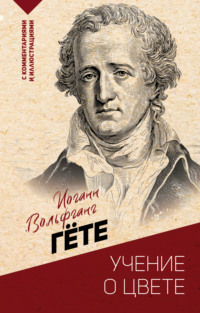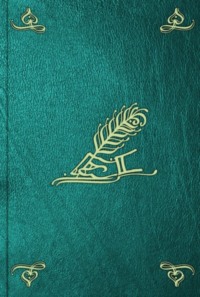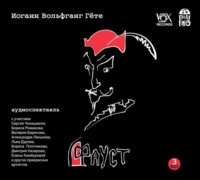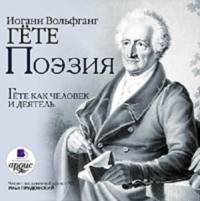 полная версия
полная версияLetters from Switzerland and Travels in Italy
The passage over the Furca
It was a strange sight, when turning for a moment your attention from the road, you directed it to yourself and your fellow travellers. In the most desolate region of the world, in a boundless, monotonous wilderness of mountains enveloped in snow, where for three leagues before and behind, you would not expect to meet a living soul, while on both sides you had the deep hollows of a web of mountains, you might see a line of men wending their way, treading each in the deep footsteps of the one before him, and where, in the whole of the wide expanse thus smoothed over, the eye could discern nothing but the track they left behind them. The hollows as we left them lay behind us gray and boundless in the mist. The changing clouds continually passed over the pale disc of the sun, and spread over the whole scene a perpetually moving veil. I am convinced that any one who, while pursuing this route, allowed his imagination to gain the mastery, would even, in the absence of all immediate danger, fall a victim to his own apprehensions and fears. In reality, there is little or no risk of a fall here; the great danger is from the avalanches, when the snow has become deeper than it is at present, and begins to roll. However our guide told us that they cross the mountains throughout the winter, carrying from Valais to S. Gotthard skins of the chamois, in which a considerable trade is here carried on. But then to avoid the avalanches, they do not take the route that we did, but remain for some time longer in the broad valley, and then go straight up the mountain. This road is safer, but much more inconvenient. After a march of about three hours and a-half, we reached the saddle of the Furca, near the cross which marks the boundary of Valais and Uri. Even here we could not distinguish the double peak from which the Furca derives its name. We now hoped for an easier descent, but our guides soon announced to us still deeper snow, as we immediately found it to be. Our march continued in single file as before, and the foremost man who broke the path often sank up to his waist in the snow. The readiness of the people, and their light way of speaking of matters, served to keep up our courage; and I will say, for myself, that I have accomplished the journey without fatigue, although I cannot say that it was a mere walk. The huntsman Hermann asserted that he had often before met with equally deep snow in the forests of Thuringia, but at last he could not help bursting out with a loud exclamation, "The Furca is a – ."
A vulture or lammergeier swept over our heads with incredible rapidity: it was the only living thing that we had met with in this waste. In the distance we saw the mountains of the Ursi lighted up with the bright sunshine. Our guides wished to enter a shepherd's hut which had been abandoned and snowed up, and to take something to eat, but we urged them to go onwards, to avoid standing still in the cold. Here again is another groupe of valleys, and at last we gained an open view into the valley of the Ursi.
The capuchins at Realp
We now proceeded at a shorter pace, and after travelling about three leagues and a-half from the Cross, we saw the scattered roofs of Realp. We had several times questioned our guides as to what sort of an inn, and what kind of wine we were likely to find in Realp. The hopes they gave us were anything but good, but they assured us that the Capuchins there, although they had not, like those on the summit of S. Gotthard, an hospice, were in the habit of entertaining strangers. With them we should get some good red wine, and better food than at an inn. We therefore sent one of our party forwards to inform the Capuchins of our arrival, and to procure a lodging for us. We did not loiter long behind, and arrived very soon after him, when we were received at the door by one of the fathers – a portly, good-looking man. With much friendliness of manner he invited us to enter, and at the threshold begged that we would put up with such entertainment they could alone offer, as at no time and least of all at this season of the year, were they prepared to receive such guests. He therefore led us into a warm room, and was very diligent in waiting upon us, while we took off our boots, and changed our linen. He begged us once for all to make ourselves perfectly at home. As to our meat, we must, he said, be indulgent, for they were in the middle of their long fast, which would last till Christmas-day. We assured him that a warm room, a bit of bread, and a glass of red wine would, in our present circumstances, fully satisfy all our wishes. He procured us what we asked for, and we had scarcely refreshed ourselves a little, ere he began to recount to us all that concerned the establishment, and the settlement of himself and fellows on this waste spot. "We have not," he said, "an hospice like the fathers on Mont S. Gotthard, – we are here in the capacity of parish priests, and there are three of us. The duty of preaching falls to my lot; the second father has to look after the school, and the brother to look after the household." He went on to describe their hardships and toils; here, at the furthest end of a lonely valley, separated from all the world, and working hard to very little profit. This spot, like all others, was formerly provided with a secular priest, but an avalanche having buried half of the village, the last one had run away, and taken the pix with him, whereupon he was suspended, and they, of whom more resignation was expected, were sent there in his place.
In order to write all this I had retired to an upper room, which is warmed from below by a hole in the floor; and I have just received an intimation that dinner is ready, which, notwithstanding our luncheon, is right welcome news.
About 9.
The fathers, priests, servants, guides and all, took their dinner together at a common table; the brother, however, who superintended the cooking, did not make his appearance till dinner was nearly over. Out of milk, eggs, and flour he had compounded a variety of dishes, which we tasted one after another, and found them all very good. Our guides, who took a great pleasure in speaking of the successful issue of our expedition, praised us for our uncommon dexterity in travelling, and assured us that it was not every one that they would have undertaken the task of being guides to. They even confessed also that this morning, when their services were required, one had gone first to reconnoitre, and to see if we looked like people who would really go through all difficulties with them; for they were particularly cautious how they accompanied old or weak people at this time of the year, since it was their duty to take over in safety every one they had once engaged to guide, being bound in case of his falling sick, to carry him, even though it should be at the imminent risk of their own lives, and if he were to die on the passage, not to leave his body behind. This confession at once opened the flood-gates to a host of anecdotes, and each in turn had his story to tell of the difficulties and dangers of wandering over the mountains amidst which the people had here to live as in their proper element, so that with the greatest indifference they speak of mischances and accidents to which they themselves are daily liable. One of them told a story of how, on the Candersteg, on his way to Mount Gemmi, he and a comrade with him (he is mentioned on every occasion with both Christian and surname) found a poor family in the deep snow, the mother dying, her boy half dead, and the father in that state of indifference which verges on a total prostration of intellect. He took the woman on his back, and his comrade her son, and thus laden, they had driven before them the father, who was unwilling to move from the spot.
The Capuchins at Realp
During the descent of Gemmi the woman died on his back, but he brought her dead as she was to Leukerbad. When we asked what sort of people they were, and what could have brought them at such a season into the mountains, he said they were poor people of the canton of Berne, who, driven by want, had taken to the road at an unseasonable period of the year, in the hope of finding some relations either in Valais or the Italian canton, and had been overtaken by a snow-storm. Moreover, they told many anecdotes of what had happened to themselves during the winter journeys over the Furca with the chamois-skins, on which expeditions, however, they always travelled in companies. Every now and then our reverend host would make excuses for the dinner, and we redoubled our assurances that we wished for nothing better. We also found that he contrived to bring back the conversation to himself and his own matters, observing that he had not been long in this place. He began to talk of the office of preaching, and of the dexterity that a preacher ought to have. He compared the good preacher to a chapman who cleverly puffs his wares, and by his pleasant words makes himself agreeable to his customers. After dinner he kept up the conversation, and, as he stood with his left hand leaning on the table, he accompanied his remarks with his right, and while he discoursed most eloquently on eloquence, appeared at the moment as if he wished to convince us that he himself was the dexterous chapman. We assented to his observations, and he came from the lecture to the thing itself. He panegyrized the Roman Catholic religion. "We must," he said, "have a rule of faith; and the great value of it consists in its being fixed, and as little liable as possible to change, We," he said, "had made Scripture the foundation of our faith, but it was insufficient. We ourselves would not venture to put it into the hands of common men: for holy as it is, and full as every leaf is of the Spirit of God, still the worldly-minded man is insensible of all this, and finds rather perplexities and stumbling-blocks throughout. What good can a mere layman extract from the histories of sinful men, which are contained therein, and which the Holy Ghost has there recorded for the strengthening of the faith of the tried and experienced children of God? What benefit can a common man draw from all this, when he is unable to consider the whole context and connection? How is such a person to see his way clear out of the seeming contradictions which occasionally occur? – out of the difficulties which arise from the ill arrangement of the books, and the differences of style, when the learned themselves find it so hard, and while so many passages make them hold their reason in abeyance? What ought we therefore to teach? A rule of faith founded on Scripture, and proved by the best of commentaries? But who then is to comment upon the Scripture? Who is to set up this rule? I, perhaps, or some other man? By no means. Every man has his own way of taking and seeing things, and represents them after his own ideas. That would be to give to the people as many systems of doctrines as there are are heads in the world, and to produce inexplicable confusion as indeed had already been done. No, it remains for the Holy Church alone to interpret Scripture to determine the rule of faith by which the souls of men are to be guided and governed. And what is the church? It is not any single supreme head, or any particular member alone. No! it is all the holiest, most learned, and most experienced men of all times, who, with the co-operation of the Holy Spirit, have successively combined together in building up that great, universal, and agreeing body, which has its great councils for its members to communicate their thoughts to one another, and for mutual edification; which banishes error, and thereby imparts to our holy religion a certainty and a stability such as no other profession can pretend to, and gives it a foundation and strengthens it with bulwarks which even hell itself cannot overthrow. And just so is it also with the text of the sacred scriptures. We have," he said, "the Vulgate, moreover an approved version of the Vulgate, and of every sentence a commentary which the church itself has accredited. Hence arises that uniformity of our teaching which surprises every one. Whether," he continued, "you hear me preaching in this most remote corner of the world, or in the great capital of a distant country are listening to the dullest or cleverest of preachers, all will hold one and the same language; a Catholic Christian will always hear the same doctrine; everywhere will he be instructed and edified in the same manner. And this it is which constitutes the certainty of our faith; which gives us the peace and confidence by which each one in life holds sure communion with his brother Catholics, and at death can calmly part in the sure hope of meeting one another again."
In his speech, as in a sermon, he let the subjects follow in due order, and spoke more from an inward feeling of satisfaction that he was exhibiting himself under a favourable aspect than from any bigotted anxiety for conversion. During the delivery he would occasionally change the arm he rested upon, or draw them both into the arms of his gown, or let them rest on his portly stomach; now and then he would, with much grace, draw his snuff-box out of his capote, and after using it replace it with a careless ease. We listened to him attentively, and he seemed to be quite content with our way of receiving his instructions. How greatly amazed would he have been if an angel had revealed to him, at the moment, that he was addressing his peroration to a descendant of Frederick the Wise.
November 13, 1779.
Among the Capuchins, on the summit of Mont S. Gotthard,
Morning, about 10 o'clock.
Mount S. Gotthard
At last we have fortunately reached the utmost limits of our journey. Here it is determined we shall rest awhile, and then turn our steps towards our dear fatherland. Very strange are my feelings here, on this summit, where four years ago I passed a few days with very different anxieties, sentiments, plans, and hopes, and at a very different season of the year, when, without any foreboding of my future fortunes, but moved by I know not what, I turned my back upon Italy, and ignorantly went to meet my present destiny. I did not even recognise the house again. Some time ago it was greatly injured by an avalanche, and the good fathers took advantage of this opportunity, and made a collection throughout the canton for enlarging and improving their residence. Both of the two fathers who reside here at present are absent, but, as I hear, they are still the same that I met four years ago. Father Seraphin, who has now passed fourteen years in this post is at present at Milan, and the other is expected to-day from Airolo. In this clear atmosphere the cold is awful. As soon as dinner is over I will continue my letter; for, I see clearly we shall not go far outside the door.
After dinner.
It becomes colder and colder; one does not like to stir from the stove. Indeed it is most delightful to sit upon it, which in this country, where the stoves are made of stone-tiles, it is very easy to do. First of all, therefore, we will tell you of our departure from Realp, and then of our journey hither.
Yesterday evening before we retired to our beds, the good father would shew us his sleeping cell, where everything was in nice order, in a very small space. His bed, which consisted of a bag of straw, with a woollen coverlid, did not appear to us to be anything very meritorious, as we ourselves had often put up with no better. With great pleasure and internal satisfaction he showed us everything – his bookcase and all other things. We praised all that we saw, and parting on the best terms with each other, we retired for the night. In furnishing our room, in order that two beds might stand against one wall, both had been made unusually small. This inconvenience kept me long awake, until I thought of remedying it by placing four chairs together. It was quite broad daylight before we awoke this morning. When we went down we found nothing but happy and friendly faces. Our guides, on the point of entering upon their return over yesterday's beautiful route, seemed to look upon it as an epoch, and as a history with which hereafter they would be able to entertain other strangers, and as they were well paid the idea of an adventure became complete in their minds. After this we made a capital breakfast and departed.
Our road now lay through the valley of the Uri, which is remarkable as having, at so great an elevation, such beautiful meadows and pasturage for cattle. They make here a cheese which I prefer to all others. No trees, however, grow here. Sally bushes line all the brooks, and on the mountains little shrubs grow thickly together. Of all the countries that I know, this is to me the loveliest and most interesting, – whether it is that old recollections make it precious to me, or that the perception of such a long chain of nature's wonders excites within me a secret and inexpressible feeling of enjoyment. I take it for granted that you bear in mind that the whole country through which I am leading you is covered with snow, and that rock and meadow alike are snowed over. The sky has been quite clear, without a single cloud; the hue far deeper than one is accustomed to see in low and flat countries, and the white mountain ridges, which stood out in strong contrast to it, were either glittering in the sunshine, or else took a greyish tint in the shade.
In a hour and a half we reached Hôpital, – a little village within the canton of Uri, which lies on the road to S. Gotthard. Here at last I regained the track of my former tour. We entered an inn, and though it was as yet morning, ordered a dinner, and soon afterward began to ascend the summit. A long train of mules with their bells enlivened the whole region. It is a sound which awakens all one's recollections of mountain scenery. The greater part of the train was in advance of us, and with their sharp iron shoes had pretty well cut up the smooth icy road. We also saw some labourers who were employed in covering the slippery ice with fresh earth, in order to render it passable. The wish which I formerly gave utterance to, that I might one day be permitted to see this part of the world under snow, is now at last gratified. The road goes up the Reuss as it dashes down over rocks all the way, and forms everywhere the most beautiful waterfalls. We stood a long while attracted by the singular beauty of one which in considerable volume was dashing over a succession of dark black rocks. Here and there in the cracks, and on the flat ledges pieces of ice had formed, and the water seemed to be running over a variegated black and white marble. The masses of ice glistened like veins of crystal in the sun, and the water flowed pure and fresh between them.
Mount S. Gotthard
On the mountains there is no more tiresome a fellow-traveller than a train of mules; they have so unequal a pace. With a strange instinct they always stop a while at the bottom of a steep ascent, and then dash off at a quick pace up it, to rest again at the top. Very often too they will stop at the level spots which do occur now and then, until they are forced on by the drivers or by other beasts coming up. And so the foot passenger, by keeping a steady pace, soon gains upon them, and in the narrow road has to push by them. If you stand still a little while to observe any object, they in their turn will pass by you, and you are pestered with the deafening sound of their bells, and hard brushed with their loads, which project to a good distance on each side of them. In this way we at last reached the summit of the mountain, which you can form some idea of by fancying a bald skull surrounded with a crown. Here one finds oneself on a perfect flat surrounded with peaks. Far and near the eye falls on nothing but bare and mostly snow-covered peaks and crags.
It is scarcely possible to keep oneself warm, especially as they have here no fuel but brushwood, and of that too they are obliged to be very sparing, as they have to fetch it up the mountains, from a distance of at least three leagues, for at the summit, they tell us, scarcely any kind of wood grows. The reverend father is returned from Airolo, so frozen that on his arrival he could scarcely, utter a word. Although here the Capuchins are allowed to clothe themselves a little more comfortably than the rest of their order, still their style of dress is by no means suited for such a climate as this. All the way up from Airolo the road was frozen perfectly smooth, and he had the wind in his face; his beard was quite frozen, and it was a long while before he recovered himself. We had some conversation together on the hardships of their residence here; he told us how they managed to get through the year, their various occupations, and their domestic circumstances. He could speak nothing but Italian, and so we had an opportunity of putting to use the exercises in this language which we had taken during the spring. Towards evening we went for a moment outside the house-door that the good father might point out to us the peak which is considered to be the highest summit of Mont Gotthard; but we could scarcely endure to stay out a very few minutes, so searching and pinching was the cold. This time, therefore, we shall remain close shut up within doors, and shall have time enough before we start to-morrow, to travel again in thought over all the most remarkable parts of this region.
A brief geographical description will enable you to understand how remarkable the point is at which we are now sitting. S. Gothard is not indeed the highest mountain of Switzerland; in Savoy, Mont Blanc has a far higher elevation and yet it maintains above all others the rank of a king of mountains, because all the great chains converge together around him, and all rest upon him as their base. Indeed; if I do not make a great mistake, I think I was told at Berne, by Herr Wyttenbach, who, from its highest summit, had seen the peaks of all the others, that the latter all leaned towards it. The mountains of Schweitz and Unterwalden, joined by those of Uri range from the north, from the east those of the Grisons, from the south those of the Italian cantons, while from the east, by means of the Furca, the double line of mountains which enclose Valais, presses upon it. Not far from this house, there are two small lakes, one of which sends forth the Ticino through gorges and valleys into Italy, while from the other, in like manner, the Reuss proceeds till it empties itself in the Lake of the Forest towns.2 Not far from this spot are the sources of the Rhine, which pursue an easterly course, and if then we take in the Rhone which rises at the foot of the Furca and runs westward through Valais, we shall find ourselves at the point of a cross, from which mountain ranges and rivers proceed towards the four cardinal points of heaven.
TRAVELS IN ITALY
FROM CARLSBAD TO THE BRENNER
Ratisbon, September 4, 1786.
As early as 3 o'clock in the morning I stole out of Carlsbad, for otherwise I should not have been allowed to depart quietly. The band of friends who, on the 28th of August, rejoiced to celebrate my birthday, had in some degree acquired a right to detain me. However, it was impossible to stay here any longer. Having packed a portmanteau merely, and a knapsack, I jumped alone into a post-chaise, and by half past 8, on a beautifully calm but foggy morning, I arrived at Zevoda. The upper clouds were streaky and fleecy, the lower ones heavy. This appeared to me a good sign. I hoped that, after so wretched a summer, we should enjoy a fine autumn. About 12, I got to Egra, under a warm and shining sun, and now, it occurred to me, that this place had the same latitude as my own native town, and it was a real pleasure to me once more to take my midday meal beneath a bright sky, at the fiftieth degree.
On entering Bavaria one comes at once on the monastery of Waldsassen, with the valuable domain of the ecclesiastical lords, who were wise sooner than other men. It lies in a dish-like, not to say cauldron-like hollow, in beautiful meadow-land, inclosed on all sides by slightly ascending and fertile heights. This cloister also possesses property in the neighbouring districts. The soil is decomposed slate-clay. The quartz, which is found in this mineral formation, and which does not dissolve nor crumble away, makes the earth loose and extremely fertile. The land continues to rise until you come to Tirschenreuth, and the waters flow against you, to fall into the Egra and the Elbe. From Tirschenreuth it descends southwards, and the streams run towards the Danube. I can form a pretty rapid idea of a country as soon as I know by examination which way even the least brook runs, and can determine the river to whose basin it belongs. By this means, even in those districts which it is impossible to take a survey of, one can, in thought, form a connection between lines of mountains and valleys. From the last-mentioned place begins an excellent road formed of granite. A better one cannot be conceived, for, as the decomposed granite consists of gravelly and argillaceous earths, they bind excellently together, and form a solid foundation, so as to make a road as smooth as a threshing floor. The country through which it runs looks so much the worse; it also consists of a granite-sand, lies very flat and marshy, and the excellent road is all the more desirable. And as, moreover, the roads descend gradually from this plane, one gets on with a rapidity that strikingly contrasts with the general snail's pace of Bohemian travelling. The inclosed billet will give you the names of the different stages. Suffice it to say, that on the second morning I was at Ratisbon, and so I did these twenty-four miles3 and a half in thirty-nine hours. As the day began to dawn I found myself between Schwondorf and Begenstauf, and I observed here a change for the better in the cultivation of the land. The soil was no longer the mere debris of the rock, but a mixed alluvial deposit. The inundation by which it was deposited must have been caused by the ebb and flood, from the basin of the Danube into all the valleys which at present drain their water into it. In this way were formed the natural bolls (pölder), on which the tillage is carried on. This remark applies to all lands in the neighbourhood of large or small streams, and with this guide any observer may form a conclusion as to the soils suited for tillage.









